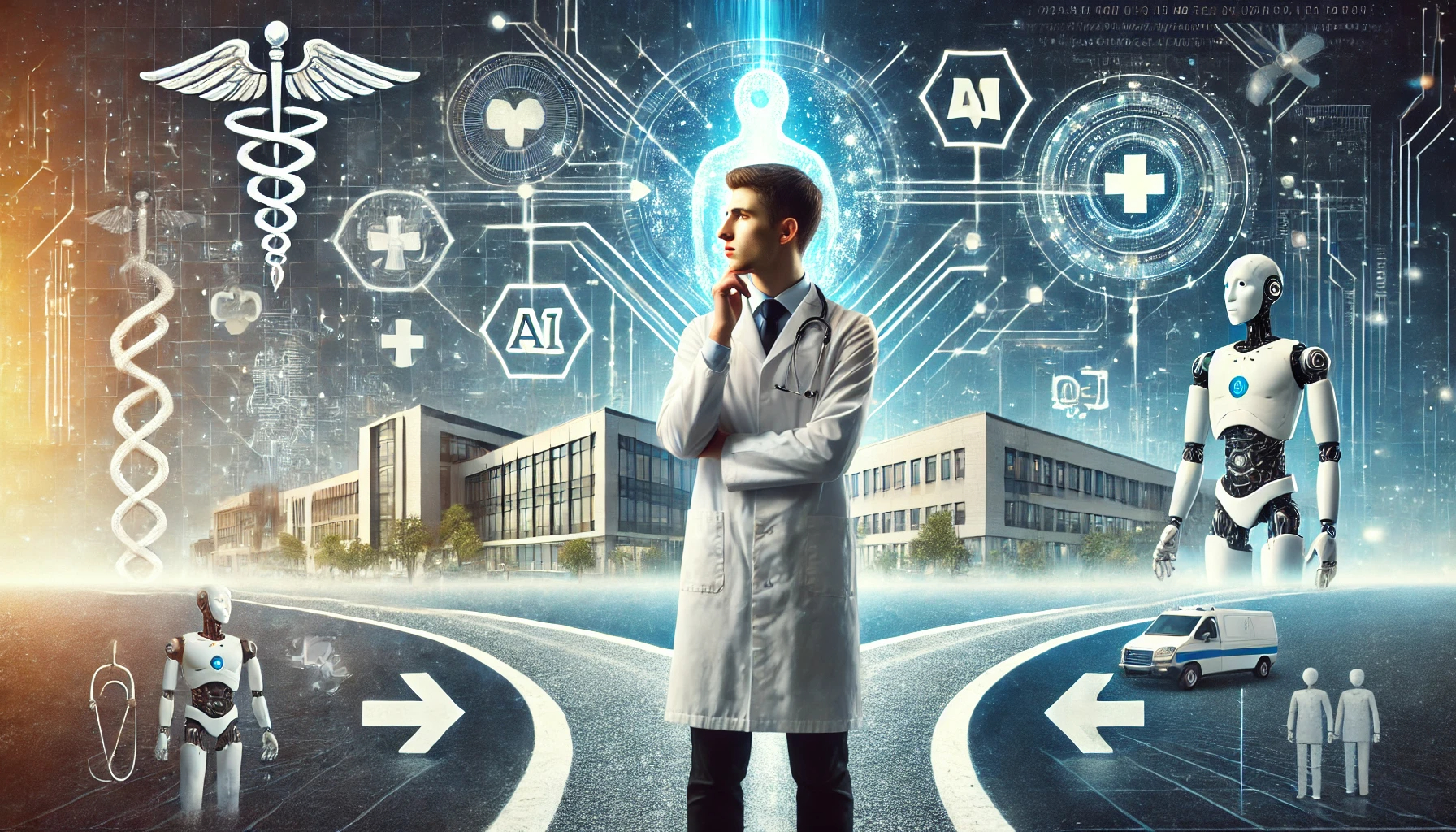Choosing a Medical Specialty in the Age of Artificial Intelligence: What Future Doctors Need to Know
The integration of artificial intelligence (AI) into healthcare is revolutionizing how medicine is practiced. From streamlining diagnostic processes to assisting in complex surgeries, AI is reshaping the medical landscape. As a medical student, selecting a specialty now requires more than considering personal interests and potential earnings—it demands an understanding of how AI might influence your future role.
Why AI Matters in Specialty Selection
AI's ability to augment or even replace certain medical tasks is not a futuristic concept; it's happening now. Consider how the industrial revolution changed labor dynamics with inventions like James Watt’s steam engine and Eli Whitney’s cotton gin. Similar to how machines redefined labor in the 18th and 19th centuries, AI is poised to redefine medical practice, potentially at an even faster pace.
Understanding AI's impact on various specialties can help you make an informed decision about your medical career. Below are key specialties where AI is making significant inroads.
1. Diagnostic Radiology: A Leading AI Frontier
Radiology relies heavily on imaging technologies like X-rays, CT scans, and MRIs to diagnose diseases. AI algorithms excel in pattern recognition and data analysis, making them ideal for tasks such as:
- Cancer Detection: AI can analyze mammograms with accuracy comparable to experienced radiologists.
- Improved Diagnostic Sensitivity: AI-assisted reading of chest X-rays has shown a 26% improvement in detecting pneumothorax and significant gains in identifying pulmonary nodules.
Although AI is currently a powerful assistant, the long-term trajectory suggests a reduced need for human radiologists as AI becomes increasingly autonomous.
2. Diagnostic Pathology: Enhanced Accuracy Through AI
Pathologists diagnose diseases by examining tissues, cells, and bodily fluids. AI is now enhancing this process by:
- Cancer Detection and Classification: AI can achieve diagnostic accuracy rates as high as 97%, outperforming human pathologists in certain studies.
- Speed and Consistency: AI algorithms streamline pathology workflows, ensuring faster and more consistent diagnoses.
As AI continues to advance, routine diagnostic tasks in pathology could become fully automated, shifting the role of pathologists toward oversight and specialized analysis.
3. Dermatology: Revolutionizing Skin Condition Diagnosis
Dermatology is another specialty ripe for AI integration. AI tools are already being used to diagnose and monitor skin conditions, offering benefits such as:
- Early Detection of Skin Cancer: AI can identify melanoma and other skin conditions with improved sensitivity and accuracy.
- Direct-to-Patient Solutions: Applications like Skin Vision empower patients to monitor their skin health independently.
This shift could reduce reliance on dermatologists for routine skin checks and redirect their focus toward complex or rare cases.
4. Internal Medicine and Pediatric Subspecialties: The Rise of AI Consultation
Subspecialties like cardiology, endocrinology, and gastroenterology often involve complex diagnostic and management tasks. AI is transforming these fields by:
- Interpreting Lab Results and ECGs: AI provides evidence-based recommendations, allowing generalists to manage complex conditions with greater confidence.
- Expanding Generalist Roles: Primary care physicians and hospitalists may handle cases previously referred to specialists, thanks to AI support.
While procedural tasks are less susceptible to automation, non-procedural specialties may see a significant shift in how care is delivered.
How to Navigate Specialty Selection in the AI Era
AI’s potential to reshape healthcare presents both opportunities and challenges. Here’s how medical students can prepare:
- Embrace Lifelong Learning: Stay updated on AI developments in your field.
- Focus on Unique Human Skills: While AI excels in data analysis, human skills like empathy, communication, and complex decision-making remain irreplaceable.
- Consider AI-Friendly Specialties: Fields like surgery or critical care, where hands-on skills are crucial, may be less affected by AI automation.
AI-Driven Insights: Tracking the Impact of Your CV for Success
Mastering Conciseness and Persuasion: Leveraging AI to Perfect Your CV
Navigating the CV Evolution: Keeping Up with Trends Using AI
The Future of AI in Medicine: Uncertain but Exciting
Healthcare systems are notoriously slow to adopt new technologies, and resistance from medical professionals is expected. However, understanding AI’s trajectory can help you future-proof your career. Whether you choose a specialty where AI is a collaborator or one where human expertise remains irreplaceable, acknowledging AI's influence is key to a successful medical career.
By considering these factors, you can choose a specialty that aligns with your interests and prepares you for the evolving landscape of healthcare in the age of artificial intelligence.









